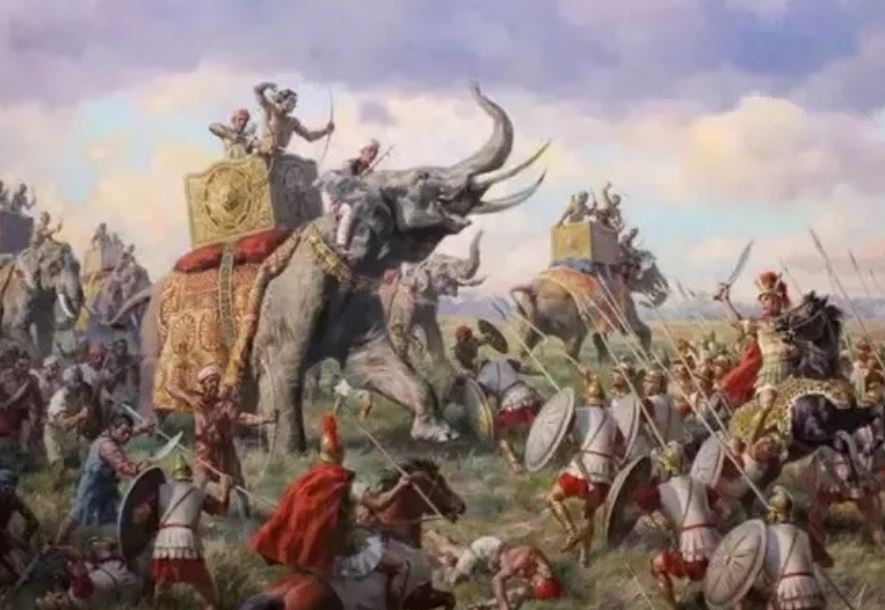

It was the site of the legendary Ancient Library of Alexandria and the Pharos Lighthouse, which was built on the site where Qaitbey Citadel stands today.Īlexander the great has a legendary record of undefeated wars, first against the achaemenid Persian under the command of Darius III then, against local chieftains and arlords as far east as punjab, India, this Alexander regarded one of the most successful military commanders in history. The Ptolomaic Dynasty would last until the Romans conquered Egypt in 32 BC.Īlexandria emerged as a great city in the Mediterranean and a center of Hellenism, spreading Greek learning and culture. In the crisis after Alexander’s death, Ptolomy, one of his generals, claimed Egypt as his kingdom and established hereditary rule. Alexander also founded a new Greek capital, Alexandria, located on the Mediterranean at the mouth of the Nile.Īlthough Alexander would never return to Egypt, dying in Babylon in 323 BC, the Greek rule that he established proved more enduring. Greek influence in Egypt was reinforced by the settlement of Greek veterans throughout Egypt, where they became a privileged aristocracy that gradually assimilated with the Egyptians. Alexander respected Egyptian culture and religion, but he installed a Greek government to control his administration of Egypt. By 331 BC he was on his way west to complete his conquest of the Persian Empire, but the impact of his conquest in Egypt was significant. Alexander and his army of Greeks were regarded as liberators and to cement the Oracle of Amun at Siwa Oasis pronounced him the new ‘master of the universe’ and a descendent of the Egyptian god Amun.Īlexander did not stay in Egypt long. At the time, Egypt was a satrapy in the Persian Empire, held loosely under Persian control since the decline of the Ancient Egyptian Empire at the end of the 7th century BC. After defeating the Persian emperor Darius for control of Syria and the Levant, Alexander marched to Egypt. Nowadays, the military academies all over the world still teach his tactics in wars thus he ranked among the most influential people in history. He became an icon for the military leaders to compare with his performance. His legendary as a classical hero in the achilles and he always featured importantly in the history of both Greek and non-Greek cultures.


He established twenty cities that carry his name, most popular is Alexandria in Egypt. Most of his role life was spent in military campaigns through Asia and Northeast Africa, he managed to form one of the most powerful empires in the ancient ages when he was only thirty, stretching from Greece to northwest India, he is considered as one of the history’s most successful military commanders.Īlexander’s Legacy includes the cultural diffusion which his conquests engendered. He spent most of his reign on a military campaign through northeast Africa and southwestern Asia.Īlexander built many new cities in the lands he conquered, including Alexandria in Egypt. He went on to conquer the lands of the Persian Empire, establishing more cities, and like Alexandria, often naming them after himself. His conquest continued through Asia until he reached the shores of the Ganga (Ganges) River in India. At this point, his army refused to continue further into India, exhausted and discouraged by heavy rains.Īlexander was 32 when he died in 323 B.C.E.ĭuring his 13-year reign as the king of Macedonia, Alexander created one of the largest empires of the ancient world, stretching from Greece to northwestern India.Alexander III of Macedon or who commonly known Alexander the Great Was the king of the great ancient Greek Kingdom of Macedon. Alexander began his reign by subduing rivals in the Greek and Macedonian regions. At a council of the League of Corinth, he was chosen as the commander of a military invasion of Asia. King Alexander began his invasion of the Middle East in 334 B.C.E.

In 336 B.C.E., at age 20, Alexander became king of Macedonia when a political rival assassinated his father. He developed a life-long love of reading and music. When Alexander was a teenager, his father hired Aristotle to be his private tutor. He studied with Aristotle for three years and from Aristotle’s teachings, Alexander developed a love of science, particularly of medicine and botany. Alexander included botanists and scientists in his army to study the lands he conquered. in Pella, Macedonia, to King Philip II. As a young boy, Alexander was taught to read, write, and play the lyre. Alexander the Great, also known as Alexander III or Alexander of Macedonia is known as one of the greatest generals in all history.Īlexander was born in 356 B.C.E.


 0 kommentar(er)
0 kommentar(er)
